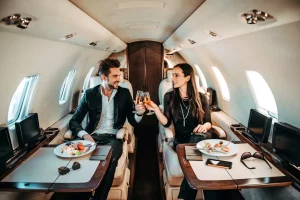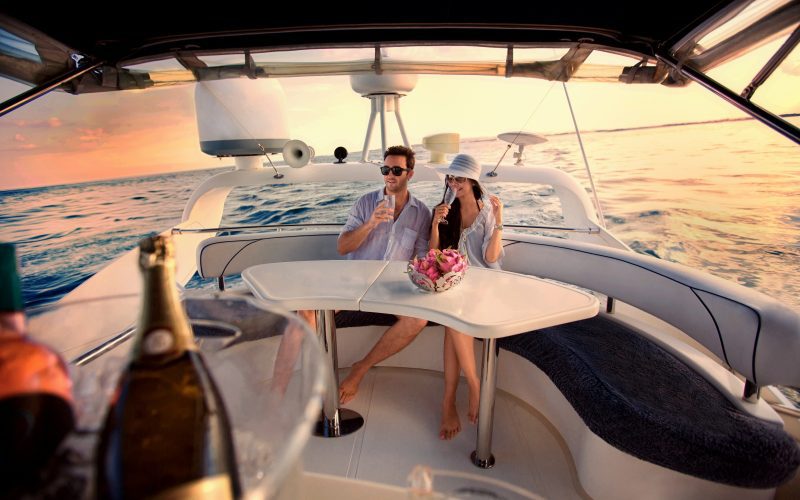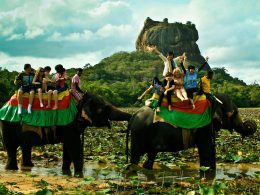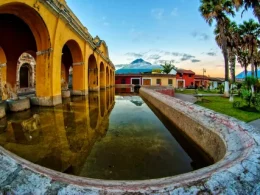Introduction
In recent years, the world of luxury travel has undergone a significant transformation. No longer reserved for the elite few, luxury travel is becoming more accessible to a broader audience. This shift is driven by a variety of factors, including technological advancements, changing consumer preferences, and innovative business models. In this article, we will explore the latest luxury travel trends and how they are making high-end experiences affordable for all.
The Evolution of Luxury Travel
Luxury travel has traditionally been associated with opulence, exclusivity, and high price tags. However, the definition of luxury is evolving. Today, luxury is less about ostentation and more about personalized, authentic experiences. Travelers are seeking unique, high-quality experiences that offer value for money.
Personalization and Customization

One of the most significant trends in luxury travel is the emphasis on personalization and customization. Travelers want experiences tailored to their preferences and interests. This trend is driven by advancements in technology, which allow travel companies to gather and analyze data to create personalized itineraries.
For example, luxury travel companies are using artificial intelligence (AI) to analyze customer preferences and create bespoke travel experiences. From personalized welcome amenities to tailored excursions, the focus is on creating memorable, one-of-a-kind experiences.
Experiential Travel
Experiential travel is another key trend in the luxury travel industry. Rather than simply visiting a destination, travelers want to immerse themselves in local culture and traditions. This trend is reflected in the rise of experiential travel packages, which offer unique activities such as cooking classes, cultural tours, and adventure sports.
Luxury travelers are increasingly seeking out destinations that offer authentic experiences. Whether it’s exploring the remote villages of Bhutan, participating in a traditional Japanese tea ceremony, or embarking on a safari in Africa, the focus is on creating meaningful connections with the destination.
Sustainable and Responsible Travel

Sustainability is becoming a crucial consideration for luxury travelers. The modern luxury traveler is conscious of their environmental impact and seeks out eco-friendly options. This trend has led to the rise of sustainable luxury travel, where high-end experiences are designed with minimal environmental impact.
Luxury travel companies are responding by offering eco-friendly accommodations, such as eco-lodges and sustainable resorts. Additionally, there is a growing emphasis on responsible travel practices, such as supporting local communities and preserving cultural heritage.
Wellness Travel
Wellness travel is another significant trend in the luxury travel industry. Travelers are increasingly seeking out experiences that promote physical, mental, and emotional well-being. This trend is reflected in the rise of wellness retreats, spa vacations, and holistic travel experiences.
Luxury wellness travel offers a range of activities, from yoga and meditation retreats to detox programs and wellness workshops. The focus is on providing a holistic approach to well-being, combining relaxation, fitness, and healthy living.
Making Luxury Travel Affordable
While luxury travel has traditionally been associated with high costs, several factors are making it more affordable for a wider audience. Here are some key strategies that are driving this shift:
Innovative Business Models
Innovative business models are playing a crucial role in making luxury travel more accessible. For example, the rise of luxury travel clubs and subscription services allows travelers to access high-end experiences at a fraction of the cost. These models offer members exclusive deals, discounts, and access to luxury accommodations and experiences.
Additionally, the sharing economy is making luxury travel more affordable. Platforms like Airbnb and HomeAway offer luxury vacation rentals at competitive prices. Travelers can enjoy high-end accommodations without the hefty price tag of traditional luxury hotels.
Off-Peak Travel
Traveling during off-peak seasons is another way to make luxury travel more affordable. Many luxury destinations offer significant discounts during the off-season, allowing travelers to enjoy high-end experiences at a lower cost. Additionally, traveling during off-peak times often means fewer crowds and a more relaxed experience.
Loyalty Programs and Rewards

Loyalty programs and rewards are also making luxury travel more accessible. Many luxury travel companies offer loyalty programs that provide members with exclusive benefits, such as free upgrades, complimentary services, and discounted rates. By taking advantage of these programs, travelers can enjoy luxury experiences without breaking the bank.
Group Travel
Group travel is another strategy for making luxury travel more affordable. Traveling with a group allows travelers to share costs and take advantage of group discounts. Many luxury travel companies offer group packages that provide high-end experiences at a reduced cost.
Conclusion
The luxury travel industry is undergoing a significant transformation, driven by changing consumer preferences and innovative business models. Today’s luxury travelers are seeking personalized, authentic experiences that offer value for money. As a result, luxury travel is becoming more accessible to a broader audience.
The key trends driving this shift include personalization and customization, experiential travel, sustainable and responsible travel, and wellness travel. Additionally, innovative business models, off-peak travel, loyalty programs, and group travel are making luxury experiences more affordable.
As the definition of luxury continues to evolve, the future of luxury travel looks promising. With a focus on creating meaningful, high-quality experiences, luxury travel is no longer reserved for the elite few. Instead, it is becoming an option for all travelers seeking unique and memorable experiences.












